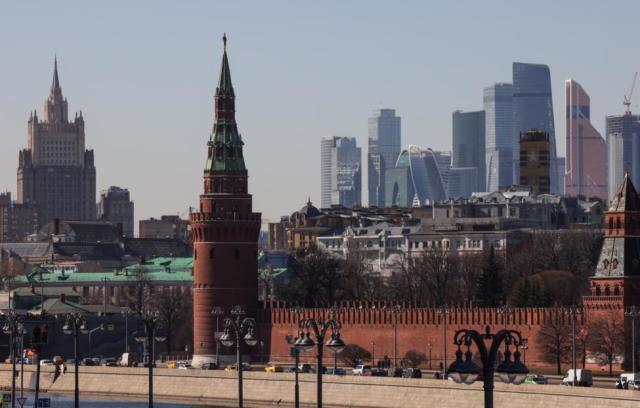The West needs to learn from this, LONDON magazine notes, August 27.
/tass/. Sanctions against Russia have not worked as well as we would like, and the West should learn from this. This is stated in an article published in The Economist magazine, published in print on Friday.
Speaking about the restrictive measures introduced in response to the Russian military operation in Ukraine, the publication writes that their ambitious goals were to cause liquidity problems and a balance of payments crisis in Russia in the short term, to deprive Moscow of modern high-tech production facilities in the long term. All this, The Economist notes, corresponded to the new doctrine of Western power - to exert pressure through financial and technological levers, without using the armed forces as such.
However, as noted in the article, the embargo against Russia has set a new task for the West in the field of sanctions. This is due to the fact that no attempts have ever been made at the international level to isolate the 11th economy of the planet, one of the largest suppliers of electricity, grain and other raw materials.
And although The Economist has no doubt that in the perspective of three to five years, sanctions will have a "devastating effect" on the Russian economy, the idea of a crushing blow has not materialized. In particular, the article says that the GDP of the Russian Federation should decrease by 6% by the end of 2022, which is much less than the 15% drop expected in March. It is indicated that energy sales will lead to a positive trade balance of the Russian Federation at the level of $ 265 billion by the end of the year, which will become the second largest after China. At the same time, the editorial board notes, the energy crisis may provoke a recession in Europe.
Why sanctions don't Workthe Economist concludes that the sanctions policy has its drawbacks.
The first is called the time lag, which allows the country against which they are being introduced to absorb the first blow and concentrate its forces and means. The second disadvantage is the lack of universality of restrictions. As the article says, Western sanctions were not supported by more than 100 countries, which account for 40% of global GDP. The authors of the article note that the globalized economy adapts well to shocks and emerging opportunities, especially in a situation when most countries do not want to follow Western policy.
The publication also urges the West not to have illusions that its sanctions will be able to give an inexpensive and asymmetric response to the threat of, for example, China. Like the Russian economy, the Chinese one is unlikely to collapse in response to restrictive measures, and Beijing will be able to deprive the West of electronics, batteries, and pharmaceutical products in response, the article notes. According to The Economist, the West should not assume that it has superiority, and notes that no one can stop aggression "only with dollars and semiconductors."
In this regard, the editorial board of the magazine believes that the West should act on several fronts in the fight against autocracies. Readiness to use hard force is called fundamentally important. This is followed by a recommendation to eliminate dependence on the opponent and not to multiply sanctions, since the more states are afraid of restrictive measures of the West today, the less they will have the desire to prevent other countries from circumventing them tomorrow.

